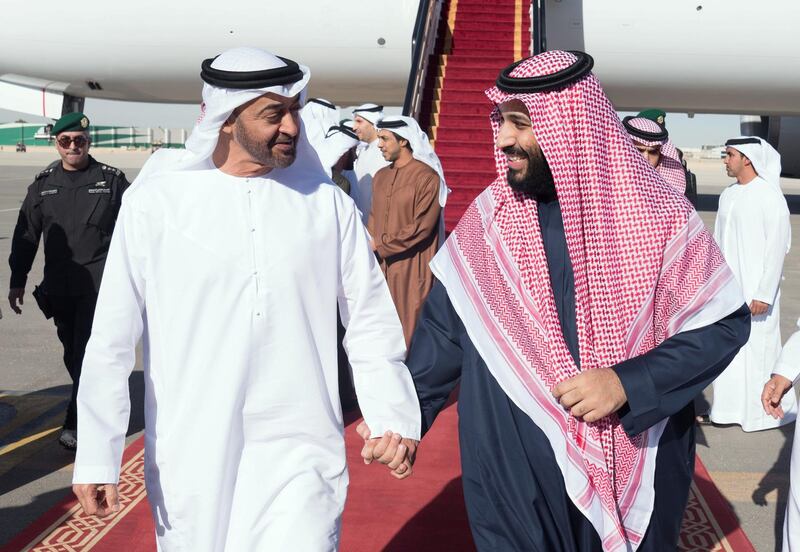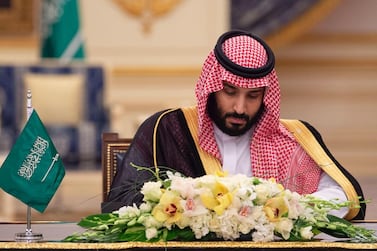The UAE and Saudi Arabia have launched a major initiative to improve customer service at government departments in both countries.
Over the next few days in Riyadh, scores of workers will learn about dealing with customer complaints, clear communication and foster a positive work environment.
The five-day training camp — known as the UAE-Saudi capacity building programme — began in the kingdom's capital on Sunday. It is the latest initiative from the Saudi-Emirati Co-ordination Council — a major alliance formed in 2017 to build ties across a broad swathe of areas including defence, political institutions and the economy.
Improving customer service and government efficiency is a central pillar of the alliance. And this training camp will chiefly focus on Saudi government employees, with workers from the country's ministries of defence, interior, education, finance and social affairs participating.
“The training programme for customer service employees of the Saudi government aims to build their capacities and reinforce the partnership between the two countries in the area of government development,” said Mohammed bin Taleea, deputy director-general of government services at the UAE’s Ministry of Cabinet Affairs and the Future.
It was the UAE, in 2016, that created the world's first ministry of happiness. And Emirati experts and trainers have travelled to the Saudi capital to speak about the lessons learnt from this experience and topics such as streamlining access to government services and workplace training.
The UAE has been committed to improving the public service for many years. In July, Sheikh Mohammed bin Rashid, Vice President and Ruler of Dubai, announced that 600 government centres would be assessed by September 14 with the worst five named and five best celebrated.
“My message to all officials: we will not be satisfied with anything less than the top position worldwide in our services and facilities,” he said at the time.
The move came two months after he criticised poor standards at a branch of Emirates Post in Dubai's Karama district. During a tour of Dubai airport last year he told staff to "raise the bar". And in a visit that made international headlines, he visited Dubai's Land Department and Department of Economic Development to find empty desks.
Meanwhile, the training camp in Riyadh is just the latest initiative from the Saudi-Emirati Coordination Council. Both countries earlier this year agreed to develop a joint cryptocurrency, a customs union and a plan to ensure goods flowed during a crisis. The two states struck the seven-point deal in Abu Dhabi in January, which also included proposals to allow Saudi and Emirati companies to bid for contracts in both countries and ensure people with disabilities can travel by air more easily.
“The Arab world is going through a watershed in its history during which it is facing myriad challenges, the survival of which entails that the two countries adopt an integrated vision toward regional developments. We should not look back on the past,” Dr Anwar Gargash, Minister of State for Foreign Affairs, said at the time.
“Today Riyadh and Abu Dhabi are spearheading a major transition in the region and all parties concerned should support their efforts to ensure remarkable progress and development in the region.”
Both countries have also been engaged in military action in Yemen and earlier this month they confirmed continued co-operation to help the country’s hard-pressed people.
"The governments of the UAE and Saudi Arabia, in line with their responsibility to support the legitimacy of Yemen in order to save Yemen and its people from the coup of the Iranian-backed Houthi militia, emphasise the continuation of all their political, military, relief and development efforts with the support of the Coalition countries," both countries said.
The Arab Coalition is led by Saudi Arabia and includes the UAE, Sudan and Senegal. The alliance has been fighting for the internationally recognised Yemeni government against the rebels since 2015.








